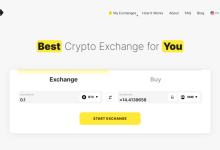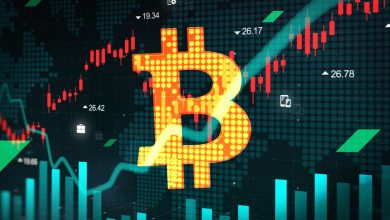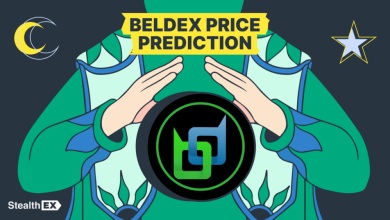Ripple’s XRP Plan, Trump’s Profit, & DOJ’s $15B Seizure

Stay tuned for the hottest updates from and . Each week, we highlight the biggest moves shaking the crypto market. Wondering what traders and investors are buzzing about? We’ve crafted a clean and simple breakdown that explains the latest events with zero fluff. You get fast insights, real impact, and trends you shouldn’t ignore. Ready to keep your edge in the market?

Ripple Labs an aggressive move to expand its control over the XRP ecosystem. The company is reportedly raising $1 billion to and store it in a new digital asset treasury. This effort will be organized through a special purpose acquisition company, giving Ripple more flexibility in how the funds are deployed. Ripple already holds 4.5 billion XRP and controls another 37 billion in escrow. With the new purchase, the company could secure an additional 427 million tokens, strengthening its influence over supply and liquidity in the market.
At the same time, is growing through major acquisitions. It recently bought GTreasury for $1 billion, adding advanced corporate treasury tools to its infrastructure. This comes after previous deals involving Hidden Road and Rail. The integration of GTreasury will enable instant settlement, 24/7 access to funds, and yield-generating products using stablecoins and tokenized deposits.
CEO Brad Garlinghouse said outdated banking rails slow global payments and increase costs. Ripple aims to solve this with blockchain, real-time processing, and unified treasury tools. If successful, Ripple could become the largest XRP holder in the world. Institutions currently prefer , but interest in . Several firms are building their own XRP reserves, signaling growing demand for the asset.
Choose StealthEX for .
- User-Friendly — Simple and minimalistic interface for everyone.
- Fast and Private — .
- .
- are available for limitless, quick and easy marketplaces.
- — Buy digital currency up to $700 without KYC!
- — Process crypto swaps at the best rates wherever you are.
- 24/7 Customer Support.
Earn from Each marketplace by Joining .
Become a partner right now and use affiliate tools:
- — Earn from your wallet, aggregator, or marketplace terminal.
- — Recommend StealthEX to your audience.
- — Built crypto marketplace widget on any page of your website.
- — A perfect choice for traffic monetization.
- — Track conversion and stats right in the personal cabinet.
President Donald Trump’s second term has brought an unexpected financial boom to his family, fueled largely by digital currency ventures. An the Trump family generated over $1 billion in pre-tax profit from their crypto businesses. Eric Trump even hinted the real number might be higher. Forbes estimates the president’s net worth at $7.1 billion, suggesting crypto now plays a major role in his wealth.
The centerpiece of their empire is World Liberty Financial. Donald Trump and all three sons are co-founders. The project has launched the USD1 stablecoin and , sold billions in assets, and is preparing a lending platform. The family’s stake reportedly exceeded $5 billion after a token unlock. Financial Times estimated over $550 million in profit from WLFI token sales alone, backed by high-profile investors like Justin Sun and Aqua 1 Foundation.
The and MELANIA memecoins delivered millions more. TRUMP generated $362 million in profit, while MELANIA added $65 million. Despite huge declines from their all-time highs, the tokens still produced substantial revenue through sales and fees.
World Liberty Financial also earned $42 million from its stablecoin USD1, now the fifth-largest in the market. Trump Media & Technology Group, which owns Truth Social and reserves, is valued at $1.9 billion. The family’s deep crypto involvement continues to draw scrutiny, raising ethical and political debates.
Venture capital giant Andreessen Horowitz is doubling down on the ecosystem. Its crypto division, a16z, , a liquid staking protocol that powers Solana’s network. The deal values Jito at around $800 million, making it one of the largest late-stage Fundings in Solana infrastructure. In marketplace, a16z will receive JTO tokens at a discounted rate, signaling a long-term commitment.
Brian Smith of the Jito Foundation called it the biggest investor commitment Jito has ever received. He said the partnership aligns both sides for long-term Rise and helps allocation Solana as the future home of internet-based capital markets. Andreessen Horowitz has previously backed LayerZero and EigenLayer, strengthening its influence across open finance ecosystems.
But this deal goes beyond money. Jito has been instrumental in shaping the regulatory debate around liquid staking in the United States. Its legal team met with the Trump administration to clarify how staking derivatives should be treated under financial law. This work could open the door for liquid staking tokens to be included in ETFs and ETPs.
Jito also partnered with VanEck and Bitwise to push the SEC to include staking in proposed Solana funds. A week later, regulators issued guidance confirming that some forms of liquid staking are not securities. Despite internal criticism from one SEC commissioner, liquid staking is becoming essential infrastructure for open finance.
Citigroup to enter the crypto custody market in 2026, marking a major shift in traditional banking attitudes toward digital assets. The bank has quietly spent nearly three years developing its own custody platform. Rather than relying on third-party marketplaces, Citi plans to hold tokens directly for its clients. This approach reflects growing confidence in crypto infrastructure and regulatory clarity under the Trump administration.
The GENIUS Act paved the way by giving banks a clear framework to handle and services. Wall Street interest surged after the SEC approved spot managed by BlackRock and Fidelity. Citi now wants to offer secure storage for native cryptocurrencies as demand rises from asset managers.
Biswarup Chatterjee, Citi’s global head of partnerships and innovation, said the project is on track and undergoing testing. The bank is exploring both in-house solutions and potential partnerships to support a range of digital assets. Security is a top priority due to the risk of hacks and insider threats.
Citi is also expanding into stablecoins. The bank believes stablecoins can help clients operate in regions with weak banking systems. Its Citi Token Services already enables instant cross-border transfers using blockchain, competing with JPMorgan’s ETH-based platform.
Other major banks are accelerating their crypto strategies as well. Institutions like Santander, Barclays, and Deutsche Bank are exploring reserve-backed digital money. The financial world is rapidly shifting toward blockchain-driven services.
Ethena Labs founder Guy Young the dramatic drop of USDe on Binance, stating that the stablecoin did not truly depeg across the market. The token briefly crashed to $0.65 on Binance during the recent crypto meltdown, triggering panic among traders. Young explained that the issue was caused by Binance using its own order book as an oracle instead of deeper liquidity sources.
According to Young, minting and redeeming USDe worked without issues on all platforms. Over $2 billion in redemptions were processed with minimal deviation from $1. The problem was isolated to Binance, which was also facing withdrawal delays. Market makers could not intervene due to technical hurdles.
Traders suspected a coordinated attack exploiting Binance’s Unified Account system. This feature allows users to post assets like USDe as collateral, but relies on internal pricing instead of external oracles. Attackers reportedly dumped up to $90 million in USDe on Binance, pushing prices down. They then shorted BTC and ahead of Trump’s tariff announcement, profiting from the crash.
The event caused nearly $1 billion in liquidations. Binance later compensated users, paying out $283 million to those affected. The marketplace admitted three assets depegged during the crash: USDe, BNSOL, and WBETH. Critics argue the incident exposed major risks in centralized marketplace infrastructure.
The United States Department of Justice linked to a massive “pig butchering” scam operation based in Cambodia. This marks the largest forfeiture action in DOJ history. Prosecutors charged Chen Zhi, the alleged mastermind, with wire fraud and money laundering. He faces up to 40 years in prison but remains at large.
Authorities claim Zhi ran industrial-scale crypto fraud schemes from forced labor compounds across Cambodia. Victims were lured through social media and manipulated into sending funds with promises of high returns. Once trust was built, scammers drained accounts and laundered the money. Prosecutors say billions were stolen globally.
Zhi was identified as the founder of Prince Holding Group, a conglomerate secretly transformed into a transnational criminal network. The group allegedly operates at least ten scam compounds in Cambodia. The US Treasury Department has designated the Prince Group as a criminal organization and sanctioned over 100 individuals tied to the operation.
Victims were not the only ones exploited. Hundreds of workers were trafficked and forced to participate in the scams. Many were held against their will and threatened if they refused. The DOJ stated that these operations caused “untold misery” across multiple countries.
Japan is preparing a major regulatory overhaul that for the first time. The Financial Services Agency (FSA) and Securities and marketplace Surveillance Commission (SESC) plan to amend the Financial Instruments and marketplace Act to classify specific digital assets as financial instruments. This will bring crypto under the same legal framework as stocks and securities.
The new rules are expected to take effect in 2026. Under the updated framework, the SESC will be empowered to investigate suspicious trading, issue financial penalties, and recommend criminal charges. Punishments will be tied directly to profits made through illegal insider trading.
Japan’s crypto market has grown rapidly, creating pressure to close loopholes. Current laws do not apply to digital assets, leaving room for abuse. Regulators aim to clearly open financene what constitutes insider information in decentralized ecosystems. They also plan to create crypto-focused bureaus within the FSA to oversee compliance and coordinate with global standards such as the OECD’s Crypto-Asset Reporting Framework.
However, enforcement will be challenging. Identifying insiders in decentralized systems and tracking cross-border trades is complex. Despite these hurdles, the move marks a major step toward protecting investors and increasing transparency. Japan aims to become a global leader in responsible without stifling innovation.
This article is not supposed to provide financial advice. Digital assets are risky. Be sure to do your own research and consult your financial advisor before investing.
The post first appeared on .







